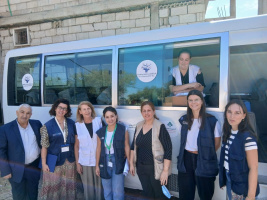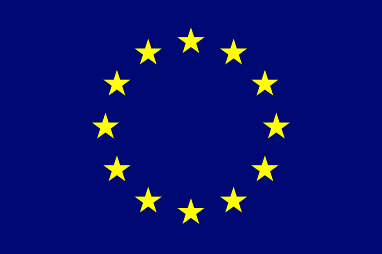Bringing Brussels and Operations Closer: Reflections from VOICE’s Visit to Lebanon

In early October, VOICE carried out a country visit to Lebanon to strengthen the link between Brussels and the reality of humanitarian operations on the ground. The visit aimed to ensure that VOICE’s advocacy work reflects the challenges faced by members in operational contexts, while also sharing insights from EU humanitarian policy and funding debates with stakeholders in the country. Another objective was to raise awareness of the humanitarian situation in Lebanon towards EU decision makers through VOICE’s communication channels.
Throughout the week, Marion Granger, VOICE Partnership & Advocacy Officer, met with a range of actors, including DG ECHO’s country team, the Lebanon Humanitarian INGO Forum (LHIF), and the Lebanon Humanitarian and Development Forum (LHDF). The week was also marked by three days of visits to Acción contra el Hambre’s projects in southern Lebanon, North Lebanon and the Baalbek-Hermel governorate.
In Lebanon, nearly 4.1 million people are expected to need humanitarian assistance in 2025, amid ongoing economic collapse, regional instability, and shrinking funding. The visit underscored several key messages relevant to VOICE’s advocacy:
- Sustained and flexible funding is essential.
Humanitarian needs in Lebanon are constantly evolving, as the conflict escalation last year clearly showed. To respond effectively, NGOs must be able to adapt quickly to changing circumstances. At the same time, building trust, access, and long-term relationships with communities takes years — in protracted crises like Lebanon, humanitarian actors cannot simply come and go. Flexible, multi-year funding allows NGOs to plan ahead, respond swiftly, and deliver quality assistance that truly meets people’s needs. - Coordination and solidarity among NGOs are critical.
In the face of the stark humanitarian financing crisis, NGOs — local, national, and international — must come together as civil society. It is through collective strength, coordination and by relying on each other’s respective added value that humanitarian actors can deliver the best possible results for people in need. - The Humanitarian–Development–Peace Nexus benefits communities.
Examples from Lebanon showed how linking emergency responses with livelihoods and social protection initiatives can deliver more sustainable outcomes for communities. It is not just a policy concept; it delivers tangible benefits. This reinforces the need for EU donors to enable practical Nexus approaches through coherent funding instruments. - Funding gaps have tangible human costs.
Cuts to major programmes, such as UNHCR’s planned downsizing in Lebanon, will leave thousands without access to essential services. For instance, an estimated 28,000 women and 3,000 newborns will face financial barriers to accessing safe hospital deliveries. These gaps highlight the urgency of maintaining attention and support for crises that no longer dominate global headlines.
Ultimately, the visit reinforced why maintaining a strong link between policy and practice is so vital. By bringing insights from Lebanon back to Brussels, VOICE continues to ensure that members’ operational realities inform our collective advocacy and that EU humanitarian policy remains grounded in the experiences of those working closest to affected communities. VOICE will pursue these efforts in the months to come, as Francesca Giubilo, Senior Advocacy Officer, will travel to Thailand and the Philippines in December.
We would like to warmly thank our VOICE member Acción contra el Hambre for welcoming VOICE in their Lebanon office and for making this trip possible!
To learn more about VOICE’s visit to Lebanon, watch out for our social media posts on LinkedIn & Instagram!

